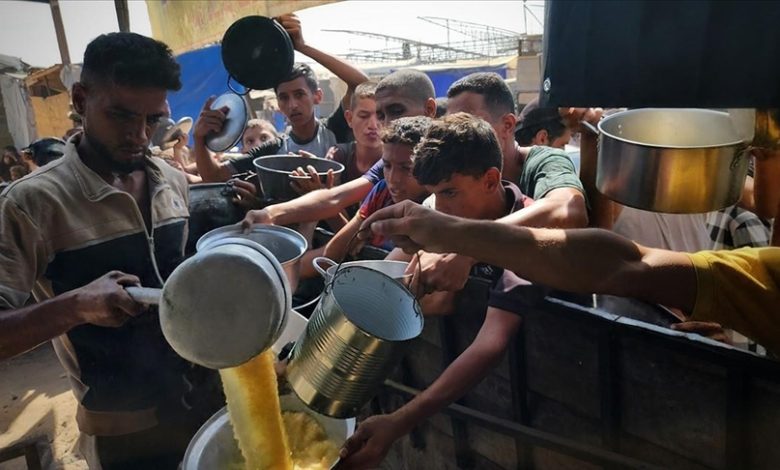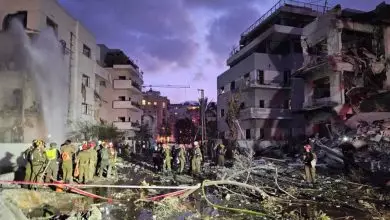Gaza Faces Imminent Famine as Bakery Shutdowns Indicate Deepening Crisis
The humanitarian situation in the Gaza Strip continues to deteriorate amid the intensification of the Israeli blockade.

The humanitarian situation in the Gaza Strip is deteriorating amid a tightening Israeli blockade. Abdul Nasser Al-Ajrami, leader of the Gaza Bakery Owners Association, reported the shutdown of the majority of bakeries in the region because of dwindling flour and diesel stocks, heightening concerns of potential famine among the encircled residents.
In a startling development, Al-Ajrami has announced that the World Food Program has formally alerted the relevant authorities in Gaza of the depletion of its flour reserves. Consequently, bakeries dependent on this supply for bread production have ceased operations entirely, leaving hundreds of thousands of families without a key food source.
The Gaza Strip’s inhabitants largely rely on bakeries backed by the World Food Program, with a network of 18 facilities spread throughout the area. These bakeries serve as a crucial resource for tens of thousands of families grappling with food insecurity. Nonetheless, the total cessation of these operations poses an unparalleled threat, potentially spiraling into a severe humanitarian catastrophe.
Al-Ajrami has warned of a dire situation as bakery closures threaten to leave thousands of families without bread. He emphasized that the crisis will escalate unless the borders are swiftly opened to facilitate the entry of essential supplies.
He stated, “It is impossible to run the bakeries without flour and fuel. This is not merely a bakery issue; it represents a life crisis for hundreds of thousands who depend on bread as their primary sustenance.”
Amid dire conditions, Al-Ajrami issued a pressing plea to the global community and humanitarian agencies, urging them to exert pressure on the Israeli occupation to reopen borders and permit the entry of food and fuel supplies. This step is deemed essential to avert the worsening of the humanitarian crisis.
On March 2, Israeli authorities implemented a closure of the Gaza Strip’s borders to humanitarian, relief, and medical aid, leading to an unprecedented decline in humanitarian conditions, according to reports from local government and human rights organizations.
Amid a deepening food crisis in the Gaza Strip, Palestinians are enduring lengthy waits outside the few operational bakeries, struggling to secure affordable bread. Among those in line is Mahmoud Eid, who arrived at the bakery early on the first day of Eid al-Fitr, hoping to obtain a loaf to feed his family.
Eid has highlighted the pressing hunger crisis in Gaza, attributing it to border closures and a severe shortage of flour in local markets. Despite making early visits following dawn prayers, he frequently faces prolonged waiting times of up to two hours before being serviced.
A bundle weighing approximately 2 kilograms includes around 23 to 24 medium-sized loaves of bread. Palestinians can purchase these loaves from World Food Program-supported bakeries for a minimal fee of 2 to 3 shekels.
Eid’s description of his daily hardships reflects the ongoing challenges faced by many family leaders across Gaza, stretching from the north to the south. He characterizes his existence as an “unrelenting ordeal,” where alleviation from one season of hardship merely signals the onset of another, as he strives to provide sustenance for his three children. The dire situation is further compounded by the lack of essential resources such as water, electricity, adequate food found elsewhere, and even basic comfort during sleep.
The Government Media Office in Gaza has highlighted a deepening humanitarian crisis, as hunger becomes increasingly evident among the civilian population. The blockade, restricting the flow of humanitarian assistance, is being characterized as an extermination effort designed to undermine the resilience of the Palestinian people.
In a Tuesday statement, the GMO announced that the occupation has entirely halted the entry of humanitarian assistance for an entire month, obstructing 18,600 truckloads of aid as well as 1,550 fuel-laden trucks carrying diesel, gasoline, and cooking gas.
Additionally, the statement noted: “In alignment with the starvation strategy, the occupation has conducted airstrikes on more than 60 food distribution centers and aid distribution points, effectively disabling their operations to further the act of starvation. It has also targeted and bombed bakeries, forcing the shutdown of numerous establishments. This has exacerbated the humanitarian crisis, resulting in a pronounced spread of hunger among the civilian population.”
Dr. Ismail Thawabteh, the Director of the GMO, stated that approximately 26 food distribution centers serving displaced and hungry populations have been bombed, in addition to 37 aid centers, since the onset of the ongoing crisis.
The United Nations Relief and Works Agency for Palestine Refugees (UNRWA) revealed on March 26 that occupation authorities have dismissed the majority of efforts by humanitarian organizations to provide critical supplies to the Gaza Strip, which is facing a potential historic famine.
According to the agency, the situation in Gaza is worsening as violent hostilities persist into the second week.
Palestinian economic analyst Mohamed Abu Jiab highlights that the bread crisis in the Gaza Strip has evolved beyond mere flour shortages, emphasizing the lack of resources necessary for bread production and manufacturing.
In a discussion with Anadolu Agency, he revealed that citizens are facing a shortage of the necessary gas to produce bread, causing most family-run or local bakeries to cease operations amid the border closures.
Abu Jiab has highlighted that certain families, although possessing limited flour reserves, are facing challenges in baking as a result of insufficient access to gas, firewood, or electricity.
In the interval between the ceasefire agreement and the subsequent border closures, Palestinians had been baking their own bread. However, in the wake of the latest crisis, they are now lining up at bakeries to obtain this staple.
The World Food Program-backed bakeries have emerged as the sole source for Gazans to secure bread, and their shutdown could precipitate genuine hunger if border closures continue.
He expressed concerns, stating, “The cost of a bread bundle hits 2 shekels, yet it is being sold for 3 shekels at distribution locations, marking up the price by 25-30%.” He also pointed out that the revenue collected by the bakery only partially covers its operational expenses.
Abu Jiab has indicated that the overcrowding at bakeries is primarily due to the relative affordability of bread, in contrast to the costs associated with home baking. This trend follows a significant increase in flour prices since the tightening of border restrictions, with the price of a 25-kilogram sack escalating from 30-40 shekels to 100 shekels.
Food shortages have plagued Palestinians amid ongoing conflicts, as stringent Israeli restrictions on aid deliveries have resulted in severe scarcity. This situation has compelled many to resort to consuming unconventional alternatives like animal feed and grass, while also drastically reducing their daily meal portions.
The shutdown of bakeries in the Gaza Strip means not only the absence of bread but also affects various other aspects of daily life. Many impoverished and displaced families depend on humanitarian aid that includes bread. The disruption of this supply significantly hampers their access to essential food resources.
Furthermore, escalating prices due to food shortages are anticipated to make it increasingly difficult for impoverished families to access basic necessities, potentially leading to a surge in malnutrition cases, with children and the elderly being particularly vulnerable.
The Gaza Strip remains under a stringent blockade enforced by Israel for several years, leading to approximately 80% of its population depending on humanitarian assistance. The situation has deteriorated in the aftermath of the violence, as hundreds of thousands of day laborers have lost their livelihoods and are dependent on aid provided by UN organizations through the Kerem Shalom crossing. With bakeries having ceased operations, the residents are confronted with the serious risk of famine, with no immediate resolutions apparent.







